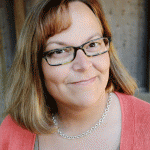Radical Archives – Question 3
November 2015
3If there is a value in radical archives, archival practice, or archival content, what is it and how do you achieve and maintain it? If not, why not?
At the Transgender Archives we believe in the social good of preserving the records and publications of leading transgender activists, researchers, and thought leaders. These materials provide primary source material for the production of new, and possibly more radical, histories; and they preserve historical information and evidence for a new generation of activists, community members, and researchers. By undertaking this work, we support a broader understanding of trans* people, their struggles, and their accomplishments.
Read this ResponseDocumenting the public sentiment about an event in real time is as valuable as the facts that unfold. Documenting Ferguson has pushed the library staff to go beyond the walls of the university and its usual constituencies. To document these events, we have formed new relationships and have adopted a new way of thinking to ensure that content is captured and will continue to be added to the collection to meet the needs of our users and our new community audience.
Read this ResponseThe value of radical archives is demonstrated by the actions you are willing to take and your ability to shape the direction of your institution, your community, or your collections. I feel that to be truly successful, archives do not have a choice about whether to be radical; rather, they must choose the ways in which they commit their energies to being or becoming radical. Since “being radical” can mean any number of things, the path taken to achieving and maintaining a radical stance really depends on what that “root” or source is for radical action.
Read this ResponseI believe there is a strong value in radical archives, as such collections and practices often have the ability to reach and engage with more diverse audiences than more traditional repositories, which may often be restrained by institutional policies or standards that can limit outreach potential. Such “radical archives” projects can include more interactive digital projects, community collaborations, or public programming and outreach events. Radical efforts like these can be achieved through missions and goals that seek to represent and/or engage with audiences, and then establishing practices that best meet these goals. Such methods can often draw upon professional standards from the archival field, but should not necessarily be limited to such standards.
Read this Response




